Dispatches From Cairo: The Dream Dissolves
A court ruling has inflicted a powerful blow on Egypt's revolution, stunning hopes for true democracy and reaffirming the control of the old elite.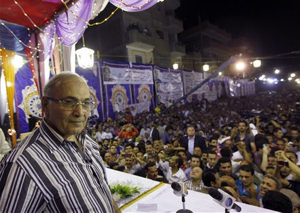
CAIRO — And checkmate. Game over?
Thursday afternoon, 98 degrees in the spring shade in Cairo, three days before the final presidential runoff election, and the entire Islamist-led Parliament has just been dissolved by a court ruling.
The decision included the invalidation of the temporary constitution and the committee assigned to write the new one, and it returns all legislative powers to the military.
This “soft coup,” as it is now being called, is based on rulings that the election of one-third of the Parliament’s seats and the Political Disenfranchisement Law, which was proposed to disallow the candidacy of members of the deposed government, were both unconstitutional. The lower and upper houses of the Parliament are now null and void, as is the constitution committee.
The original law passed by the Parliament banning members of former President Hosni Mubarak’s government from candidacy was intended to prevent the powerful elite network of his regime from reinstating his government. This law was appealed and set aside to enable Ahmed Shafiq — a Mubarak loyalist, a former air force general, a former minister of aviation and a onetime interim prime minister — to run. Considered for years a possible alternative to Mubarak’s son as successor in an autocratic, one-party system, Shafiq was promoted as a military strongman who could reimpose order and save the country from Islamist theocracy.
Earlier this week, Egypt experienced the disintegration and reassignment of the constitutional committee, followed by massive resignations from the panel in objection to its new Islamist dominance — actions that left the opposition fractured and vulnerable to the fatal stroke delivered to the revolution Thursday.
Electing a president without a parliament or constitution will give the winner absolute power, despite the promises of equity made by the now virtually unopposed Shafiq, whose comments after the court ruling seemed like a postelection victory speech.
The other candidate in the runoff is the Muslim Brotherhood’s Mohamed Morsi. The ruling might have the effect of invalidating his nomination, which relied on his party’s presence in Parliament.
The reaction of many Egyptians to this week’s events was captured by an engineer whom I know, Hafez. “It’s a coup d’etat,” he said. “They [the military] have taken over everything now. It’s official.” Hafez, a moderate Muslim who considers himself a revolutionary, was hoping for a nonsectarian government. He said that in preliminary voting he cast his ballot for Hamdeen Sabahy, the socialist candidate.
Hafez said he believed there could eventually be a democratic election despite his deep disappointment over the two finalists and his suspicion that there was some vote tampering, not to mention manipulation of easily influenced public sentiment. He planned to boycott the election, as did many others, hoping a low turnout would somehow invalidate it and force the whole process to be redone. He now feels that the Egyptian people were naive in raising their hopes so high. “It’s all over now. It was all for nothing,” he said, gulping with emotion.
Thursday night in the square below my apartment, people were playing loud music, laughing, yelling, arguing and fighting, as usual for the beginning of the weekend. An addition was a megaphone blaring urgent campaign messages for Shafiq, now clearly destined to become president of the Arab Republic of Egypt. There was a strangely ominous tone in the noise, but many people in this mixed-class neighborhood are happy with the prospect of Shafiq being their leader.
The Supreme Constitutional Court, still made up of judges appointed by Mubarak, had dropped its legal bomb earlier in the day, effectively wiping out its opposition, the once-outlawed Muslim Brotherhood, democratically elected as an overwhelming majority in the Parliament and whose candidate, Morsi, had been the front-runner in the presidential election runoff, which remains set for this weekend.
The validity of any candidate can be decided even retrospectively, after the election and without the possibility of appeal, by the Supreme Presidential Electoral Commission, which, as stipulated in Article 28 of the interim constitution, has unfettered authority that is beyond even judicial power. Opposition figure Mohamed ElBaradei, former head of the International Atomic Energy Agency, has warned repeatedly that Article 28 must be amended, but Egyptians who originally demonstrated in favor of such an action have been distracted by the rush of issues over the months since its inclusion.
The Supreme Constitutional Court will rule on the results of the election, also with no possibility of appeal.The people are exhausted. The new ruling means that whoever wins the runoff, in addition to having no checks from a parliament or constitution, will control elections of future parliaments. The military rulers, the Supreme Council of the Armed Forces, as of now hold parliamentary legislative powers and the right to select the Constituent Assembly, the committee that will write the future constitution.
The majority of voters — the more than 50 percent who voted in the preliminary balloting for other than the two final candidates, Morsi and Shafiq — found themselves faced with choosing the lesser evil or not voting. Many non-Islamists were willing to vote for the Muslim Brotherhood’s “Shariah candidate,” Morsi, just to avoid falling back into the old regime. The usual tactics were used successfully; the media were saturated with propaganda in favor of the regime’s candidate, Shafiq, aiming at the easily swayed silent majority. Some sided with Shafiq in order to avoid rule by the Muslim Brotherhood, or a religion-based government.
As of Thursday, however, any preference appears to be moot in the face of the undiminished control of the longtime ruling power structure. “Choice” has been revealed as only a futile exercise in social comment.
Shafiq has said that when he is elected he will put an end to all protests within 30 days and that he will execute as many of these “criminals” as it takes. This has caused fear among some of the population, but not as much as does the prospect of continued instability and economic hardship and fuel shortages.
In anticipation of public reactions to this week’s decisions and coming rulings and elections, the military as of Thursday has been re-granted the right to arrest civilians in a virtual reinstatement of the emergency law that was ended May 31. This will remain in effect until a new constitution is completed.
The election between Shafiq and Morsi will take place as scheduled on Saturday and Sunday. While there is gossip about Shafiq’s strangely slurred interviews, well-known inarticulate speaking and the fact that he is still facing corruption charges related to his role in the Mubarak government, Morsi has not done well in handling the new turn of events.
In interviews Morsi contradicts himself and has said he will cooperate and compromise with the SCAF, hoping to avoid disqualification. Attempting to reach the people’s emotions, he has also claimed he will continue to fight for and represent the martyrs of the revolution. He has called for marches and demonstrations on Friday and declared that “we shall claim victory for the martyrs or we shall be martyrs too.” Even with that, he has lost a great deal of his following as people shun his sinking ship.
And so, with his back held up by the 60-year-old mountain of Egypt’s military-capitalist state, Shafiq remains reassuring to those who fear the Brotherhood and its secret extranational Islamist loyalties, those who fear all other unknowns, and those who long nostalgically for a strong leader who will take over the awful responsibility of governing.
But this is Egypt, and Egypt resists all predictability. The people can’t figure out if they are sad or relieved … the next days will tell. Everything can change in a moment. The people here have ancient memories yet can forget their pain from one day to the next. A country so clever and so foolish, where most people live by the heart and not the mind, is full of contradictions and surprises and secrets.
And finally this is a land where the ancient and omnipresent dust that invades everything and eventually stops every motor and gear has gotten into the heart of the revolution. In the pale, gray dawn of Friday, calls for protest echo tremulously across the social media. People wait to hear what the imams will say to guide their passions; the imams themselves await divine inspiration. Despite the fatigue, many have tried to sleep but cannot, buffeted by thoughts of pointless martyrdom, their hopes and visions obscured by the sudden understanding that this, too, will be buried in the eternally shifting Saharan sand.
Your support matters…Independent journalism is under threat and overshadowed by heavily funded mainstream media.
You can help level the playing field. Become a member.
Your tax-deductible contribution keeps us digging beneath the headlines to give you thought-provoking, investigative reporting and analysis that unearths what's really happening- without compromise.
Give today to support our courageous, independent journalists.
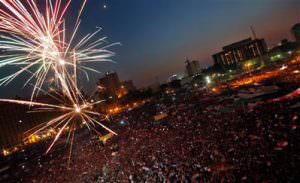
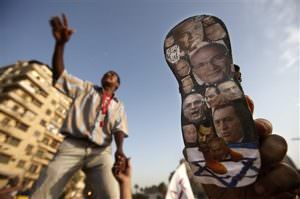
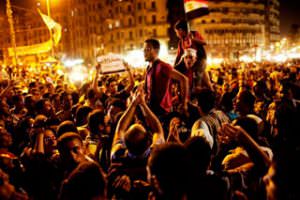
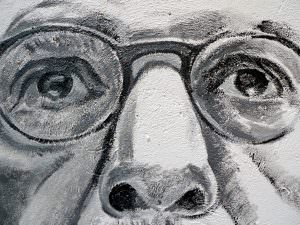

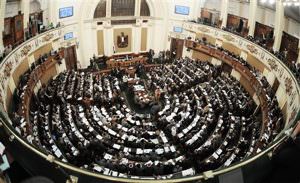
You need to be a supporter to comment.
There are currently no responses to this article.
Be the first to respond.